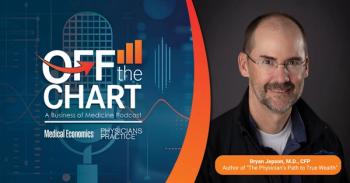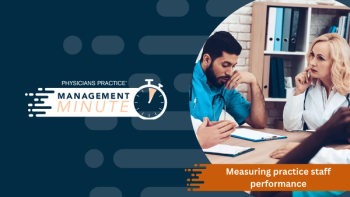
Six Ways Physicians Can Get More Sleep
Physicians are at risk of insomnia just as much as the general population. Here are six tips to reclaim your rest.
Nobody is sure exactly how many people in the U.S. suffer from insomnia, but estimates range between 35 and 65 million people. Second-shift and third-shift workers on average are more prone to insomnia, as are older adults. Women, more than men, seem to be susceptible, and physicians as much as lay people.
Beyond insomnia, narcolepsy, which is a malfunction of one's central nervous system, affects between 250,000 to 350,000 people domestically. A narcoleptic can experience daytime sleepiness including temporary, sudden loss of muscle control, and a very brief paralysis when dozing off or upon waking. Such sleep attacks can happen when they're driving, operating delicate equipment, or in mid-sentence while merely speaking to someone else.
So many individuals exhibit symptoms of fatigue to chronic fatigue, that medical professionals themselves are often dumbfounded as to how to treat them. One rational holds that if everyone feels this same way, it is hard to diagnose.
Drowsy nation
A survey sponsored by the Better Sleep Council found that of 1,000 adults, one out of three indicated that sleeplessness affected their work. Here are other findings:
• Twice as many men as women admitted to dozing off at work, at their desks.
• Nearly 50 percent of those polled felt that long work hours prevent them from attaining all of the sleep they require.
• 20 percent of respondents admitted to being tardy for work or calling in sick due to poor sleep the night before.
• 33 percent of adults felt that they're not well-rested for work when they arise in the morning.
Exhaustion is not new and nothing to take lightly. It is said that while he was president, George Washington would retreat for days and sometimes weeks to get needed rest and to restore his facilities. From NBA basketball coaches, to Fortune 500 top executives, to university chancellors, to physicians in all specialties, everybody needs the right amount of sleep daily. If you're among those people who frequently feel fatigued, it's likely of little comfort to know that so many others are in the same boat.
Commit to more sleep now
If you're committed to getting more sleep, here are several ideas:
1. Pick one night a week in which you will retire extra early, an hour or two before your normal time.
2. Attempt to make your seven-day average equal to eight hours of sleep per night, however you get there.
3. Figure out what time you need to get to bed so that you can arise in the morning at the desired time, without an alarm clock.
4. Give yourself at least one weekend a month where you sleep long on Saturday and Sunday.
5. Read up on sleep to gain greater knowledge as to what you can do to ensure that you are among those who are fully rested when you arrive at work.
6. Let others in your household know that proper sleep is now a priority of yours.
Newsletter
Optimize your practice with the Physicians Practice newsletter, offering management pearls, leadership tips, and business strategies tailored for practice administrators and physicians of any specialty.






